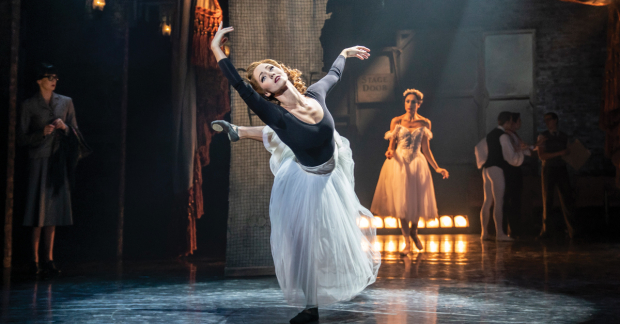Review: Matthew Bourne's The Red Shoes (Sadler's Wells)
Matthew Bourne takes on Powell and Pressburger’s famous 1948 film about love, art and obsession

© Johan Persson
Back after its twin Olivier Award-winning premiere in 2016, Matthew Bourne's The Red Shoes is the sort of plush festive treat that is pure human catnip for London audiences. Based on the story and the music from Powell and Pressburger's iconic 1948 film (in turn modeled on the Hans Christian Andersen fairy tale penned a century earlier), it follows an aspiring dancer – Victoria – as she leaps into the limelight to become a coveted principal in a company.
Bourne's capacity to tell stories through motion continues to astound. The Red Shoes, with its winding meta-narratives, multiple locations and sometimes indistinguishable slick-haired suited men, isn't as straightforward as something like Romeo and Juliet, which, all placed within one institute, premiered over the summer.
One key to Bourne's success is his creative partnerships. Designer Lez Brotherston conjures up the monochromatic world of The Red Shoes ballet before dazzling with a multicoloured Monte Carlo café. A smaller revolving proscenium arch scythes through the Sadler's stage, demarcating back and forestage with oscillating ease. Orchestrator Terry Davies transforms the tunes from Bernard Herrmann's Hollywood scores into luscious, symphonic experiences, as succulent and as saturated as the ethereal tungsten glow of Paule Constable's lighting. It's no surprise that after The Red Shoes' premiere in 2016 Constable then went on to do something similar with Dominic Cooke's Follies.
Essentially using the same plot line as the film, Bourne revels in the distinction between staging art and creating it – the former perfunctory, adroit and regimented, the latter messy, intense, fraught, draining and ultimately enchanting. The way that Victoria's dance company director Boris Lermontov concocts the titular ballet from amidst a sea of squabbling creatives would chime with any artist out there, while Victoria's destructive yearning to perform ultimately spells tragedy.
By merely being a part of Bourne's company you already know that the performers will be on top form, but the variety of talent on display is quite something. Ashley Shaw, having performed in the show in 2016, returns with the steely compassionate drive that defines Victoria's need to succeed, while Glenn Graham instills a quiet rage in Boris as his desires are refuted.
Harrison Dowzell, as Victoria's lover-musician Julian, seemingly casts spells with a conductor's baton as he revels in the excitement of his music in a brilliant solo sequence. A recent graduate, Dowzell is a relative newcomer to the company after first appearing in Romeo and Juliet over the summer – but surely one to watch as he commands the attention of the auditorium without a shade of green.
The second act hurtles quickly towards the show's abrupt conclusion with perhaps slightly too much haste, but it's hard to not get swept away in the gorgeousness of one of Bourne's most assured productions to date – a real Christmas treat.
















